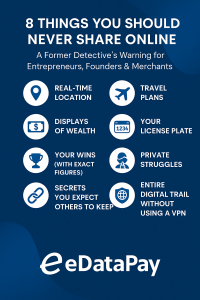Cryptocurrencies in eCommerce
Bitcoin, Digital Dollars, and the Future of Money: The Crypto Question
Unveiling Cryptocurrencies: Uncovering the Digital Revolution
Digital currency can be decentralized, where supply control is determined by a network of users and validated by consensus, or centralised, where there is a single point of control over the money supply.
What we currently refer to as a “e-money” institution is the centralized version of digital currency. Driven by technical progress, national banks will soon rely mostly on the centralised digital currency as the central bank digital currency (CBDC) begins to take shape.
Tokens and cryptocurrencies released online without the use of financial security measures are examples of decentralized digital currencies.
Discover the world of virtual or digital currencies, sometimes known as cryptocurrencies, which arose after the 2008 financial crisis. Find out how they affect a variety of services, secure transactions, and have value on the internet. Explore the world of Bitcoin and the more than 1,300 other cryptocurrencies now in use to see what possibilities they may present.
AI together with cryptocurrency
Among the earliest industries to use AI into its operations was the finance sector. AI is the driving force behind automated decentralized exchanges, or DEXs, in the cryptocurrency space. It is also utilized in blockchain security testing and research.
Cryptocurrency: Uncovering a Digital Revolution
Who is the biggest Bitcoin owner?
Nakamoto Satoshi
Who are the biggest Bitcoin holders, then? Top Bitcoin holder as of 2024 is said to be Satoshi Nakamoto, the anonymous founder of Bitcoin, according to research and analysis firm River Intelligence. About 1.1 million Bitcoin tokens are held by Satoshi Nakamoto across roughly 22,000 distinct addresses, according to the corporation.

First of all,
This digital phenomenon, which provides a decentralized and safe way to conduct financial transactions, has taken the world by storm.
With the advent of cryptocurrencies as a digital revolution following the 2008 financial crisis, encryption was incorporated for improved security and money supply enforcement. These virtual currencies, in contrast to conventional financial instruments, have value online and are used for purposes other than just making purchases. Let’s examine the development and importance of cryptocurrencies as we delve into their complex environment.
The History of Digital Currency
Deconstructing the Financial Crisis of 2008:
Recalling the turbulent days of the 2008 financial crisis is necessary to comprehend the origins of cryptocurrencies. The advent of digital currencies, which put traditional financial systems to the test and ushered in a new era of decentralized transactions, was made possible by this economic upheaval.
Cryptocurrencies as Value Carriers on the Internet:
Cryptocurrencies are not limited by geography, unlike traditional currencies that are only found in specific places. They act as value carriers over the internet, facilitating international transactions for users. The potential of cryptocurrencies to be used anywhere to pay for goods and services promotes an international economy.
Compared to more established methods of doing online financial transactions, cryptocurrencies offer a number of advantages. Although it may seem futuristic, using the internet as a single source to connect to a single global financial system is not that far off thanks to digital currencies. In addition, a lot of cautions have been issued on the potential for cryptocurrency to be abused for money laundering, fraud, and the sale of illicit products and services. The risk for misuse is increased by the anonymity that comes with using virtual currencies, like Monero.
Cryptocurrencies at Work: Monetary Value Exchanges
One aspect of cryptocurrencies is that they function as payment intermediaries. An international cryptocurrency that is similar to Bitcoin is being used to revolutionize existing payment methods by enabling safe and quick purchases anywhere.
Worth of Services:
Cryptocurrencies are valuable for a variety of services outside of just financial transactions. Think about a file storage company that accepts payments from users inside its network using its own coin. This demonstrates how digital currencies can be used to support and improve a wide range of online services.
Bitcoin: The First Online Payment System
Peer-to-Peer Infrastructure:
Bitcoin is the leading cryptocurrency, a decentralized payment network that facilitates transactions via peer-to-peer technology. By doing away with the necessity for middlemen, this novel strategy promotes an effective and trustless system.
The Environment of Cryptocurrencies
An Abundance of Choices
Over 1,300 cryptocurrencies are in use as of right now, according to Coinmarketcap, an aggregator of cryptocurrency exchange statistics. Users can choose from a wide range of options in this expansive terrain, each of which meets their own needs and tastes.
Section FAQ
Do cryptocurrencies have security?
Advanced cryptography techniques are used by cryptocurrencies to ensure safe transactions. Blockchain technology’s decentralized structure improves security by thwarting attempts at fraud and hacking.
Can I make regular transactions using cryptocurrencies?
Of course! You may use a number of widely used cryptocurrencies, including Bitcoin, to make purchases of products and services anywhere in the globe. The landscape of traditional payments is gradually changing as a result of their widespread acceptance.
In what ways do cryptocurrencies improve services?
By acting as a payment method inside networks, cryptocurrencies enhance services. For example, file storage providers might assign work to their own coin, resulting in a smooth and effective ecosystem.
Is Bitcoin the only coin that merits attention?
Though there are several options available in the cryptocurrency sector, Bitcoin is the most well-known. Every cryptocurrency serves a different function and has special characteristics to suit a range of demands and tastes.
How do cryptocurrencies use peer-to-peer technology?
With cryptocurrencies, peer-to-peer technology allows users to transact directly with one another without the involvement of middlemen. The efficiency, transparency, and security of this decentralized method are improved.
How do I make my way around the complex world of cryptocurrencies?
Investigating and comprehending the bitcoin landscape are necessary for success. Make informed choices by investigating the features, applications, and communities related to various cryptocurrencies.
What does “DeFi” mean?
Blockchain technology and cryptocurrencies have given rise to a new breed of “decentralized finance,” or DeFi, companies and initiatives. DeFi, which tries to provide users with access to financial services—lending, borrowing, and trading—without the need for traditional institutions like banks and brokerages, which frequently charge exorbitant commissions and other costs, is essentially the Wall Street of cryptocurrencies. Rather, “smart contracts” carry out transactions automatically in response to specific events.
Built on the Ethereum blockchain are the majority of DeFi apps. Experts claim that blockchain technology has other potential uses outside of cryptocurrencies because of its value in tracking transactions, including easing international trade.
According to CFR’s Mallaby, “you can imagine a new kind of financial system being constructed out of tokens based on blockchain that have advantages over the old, centralized kinds of money.” “It’s a new way of organizing finance; you trust the code, the blockchain, and the decentralized ledger.”
In summary
The question of whether cryptocurrencies are still the future of money is multifaceted. The current landscape showcases achievements, challenges, and ongoing developments. As technological innovations, regulatory frameworks, and institutional integration continue to shape the trajectory, the potential for cryptocurrencies to play a significant role in the future of money remains intriguing.
Regulated markets and financial actors’ privacy are critical in the world of finance. The protections of these principles are constructive and equitable financial institutions serving as middlemen. These are usually state-run regulatory bodies. Nonetheless, in the digital age, something has evolved. A new kind of networking and teamwork is being adopted in governance.
It’s clear from navigating the changing cryptocurrency market that these virtual entities are more than just financial instruments. Global cryptocurrency legislation pertaining to blockchain technology and digital currencies issued by central banks have not yet been finalized. Up until now, regulations have focused on addressing security issues related to money laundering and terrorism financing as well as protecting consumers. Offering security, accessibility, and value in a range of services, they signify a paradigm shift. With the advent of Bitcoin and the plethora of options accessible today, the world of cryptocurrencies is set for further expansion and advancement.
Contact eDataPay at www.eDataPay.com or by calling +1-561-395-9554 to start a trip where your payment problems become opportunities and your business soars to new heights. Your story of success starts with eDataPay.









